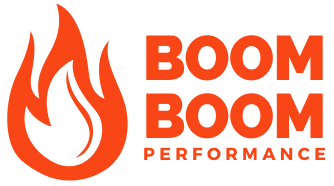
When I first decided to lose 40 pounds, I had a lot of questions: “How long will it take?”, “What do I need to do?”, and “Is it really possible to achieve this goal?” If you’re asking the same questions, you’re not alone.
Losing weight is a journey that requires commitment, planning, and a clear understanding of what it takes to reach your goal. In this blog, I’m going to share my insights on how long it really takes to lose 40 pounds, along with tips and strategies that helped me along the way.
What to Expect When Trying to Lose 40 Pounds

There’s no one-size-fits-all answer to the question, “How long does it take to lose 40 pounds?” The timeline can vary greatly depending on several factors, such as your age, gender, metabolism, lifestyle, and your level of commitment.
However, a general rule of thumb is that healthy weight loss occurs at a rate of 1–2 pounds per week. At that rate, losing 40 pounds could take anywhere from 20 to 40 weeks. That’s around 5 to 10 months of consistent effort.
I know that sounds like a long time, but let me explain why taking it slow and steady is important.
Why Losing 40 Pounds Takes Time
When I began my weight loss journey, I wanted quick results. But I soon learned that fast weight loss can often lead to disappointment and health risks.
Rapid weight loss might sound tempting, but it’s rarely sustainable. You may end up losing muscle mass, which can slow down your metabolism and make it harder to maintain your weight loss.
That’s why I adopted a more gradual approach, focusing on healthy eating, exercise, and building habits that I could sustain in the long term. Losing 40 pounds isn’t just about the scale—it’s about creating a healthier lifestyle that lasts.
The Key Factors That Affect How Long It Takes to Lose 40 Pounds
Several factors will influence how long it takes to lose 40 pounds. Here’s a breakdown of what I learned:
1. Your Starting Point Matters
The more weight you need to lose, the quicker you might see results initially. This is because people with more weight to lose often experience faster weight loss in the beginning as their body adjusts to dietary changes. However, as you approach your goal weight, the rate of loss tends to slow down.
2. Diet: What You Eat Plays a Big Role

My diet was the biggest factor in how quickly I lost weight. I made sure to stick to a balanced, calorie-controlled diet. To lose weight, you must burn more calories than you consume.
I didn’t follow any extreme diet trends; instead, I focused on eating whole, nutrient-dense foods like lean proteins, vegetables, whole grains, and healthy fats.
3. Exercise: A Key to Speeding Up Weight Loss
Exercise helped me increase my calorie burn, which sped up the process. I incorporated both cardio and strength training into my routine.
Cardio exercises like running, swimming, or cycling helped me burn calories, while strength training exercises helped me build muscle, which boosted my metabolism.
4. Consistency and Patience Are Crucial
The most important lesson I learned was that consistency matters more than speed. I didn’t try to make drastic changes all at once. Instead, I focused on making small, sustainable adjustments over time, which added up to big results.
5. Sleep and Stress Management

I didn’t realize how important sleep and stress management were until I started seeing the effects. Poor sleep and high stress can interfere with weight loss by increasing hunger and cravings. Once I started prioritizing sleep and managing stress, I noticed better results.
What Happens If You Lose 40 Pounds Too Quickly?
While you might be eager to see quick results, losing 40 pounds too fast isn’t healthy or sustainable. Losing weight too quickly can lead to:
- Muscle loss: Rapid weight loss can cause you to lose muscle, not just fat.
- Nutrient deficiencies: Extreme diets may not provide the nutrients your body needs to function properly.
- Metabolic slowdown: Losing weight too quickly can slow down your metabolism, making it harder to maintain the weight loss.
- Emotional and mental strain: Quick results can create a false sense of achievement and lead to burnout.
That’s why I made sure to focus on gradual progress, knowing that sustainable habits would bring lasting results.
How to Stay on Track While Losing 40 Pounds

Along the way, I encountered challenges, but I stuck with it because I had a solid plan. Here are some tips to stay on track:
- Track Your Progress Regularly: Use a journal or an app to track your food intake, exercise, and emotions. This helps you stay accountable and makes adjustments easier when needed.
- Set Smaller Milestones: Instead of focusing only on the big goal of losing 40 pounds, break it down into smaller, more manageable goals. Celebrate these milestones along the way.
- Don’t Be Too Hard on Yourself: Some days won’t go as planned. If you slip up, don’t give up! I learned that consistency is key, not perfection.
- Find Support: Whether it’s a workout buddy, an online group, or family support, having people who encourage you can make a huge difference.
How to Maintain Your 40-Pound Weight Loss
Once I reached my goal, the real challenge began: maintaining my weight loss. This is where many people falter, but here’s what helped me:
- Keep active: Even after reaching my goal, I continued exercising regularly. This is important for keeping weight off long-term.
- Stay mindful of your diet: I didn’t revert to old eating habits. Instead, I focused on portion control and balanced meals.
- Keep track of your weight: I still weigh myself regularly to ensure I’m staying on track.
FAQs on 40 Pounds Weight Loss
How long will it take to lose 40 pounds through exercise?
The timeline for losing 40 pounds through exercise varies based on your fitness routine, but a combination of cardio and strength training, along with a calorie-controlled diet, can help you lose 1–2 pounds per week.
What’s the fastest way to lose 40 pounds while staying healthy?
The safest and healthiest way is to combine regular exercise with a balanced diet that creates a calorie deficit, avoiding crash diets or extreme restrictions.
Is it possible to lose 40 pounds in just 3 months?
Losing 40 pounds in 3 months is challenging and may not be sustainable for most people. It’s best to aim for a slower pace to ensure that you maintain muscle mass and health.
What diet is most effective for losing 40 pounds?
A diet rich in whole foods like lean proteins, vegetables, and whole grains, while avoiding processed foods and sugary snacks, is most effective for losing 40 pounds.
How much exercise is needed to lose 40 pounds?
To lose 40 pounds, aim for at least 150 minutes of moderate-intensity exercise per week, such as brisk walking or cycling, combined with strength training two to three times per week.
How Long Does It Take to Lose 40 Pounds? Patience is Key
In conclusion, how long does it take to lose 40 pounds? For most people, it will take anywhere from 5 to 10 months if you focus on a gradual, sustainable approach. Remember, weight loss isn’t a race. It’s about making lifestyle changes that lead to lasting results.
For me, the most rewarding part of the journey wasn’t just hitting the 40-pound mark—it was gaining confidence, energy, and health.
If you’re starting your journey, remember that it’s not about the speed; it’s about the consistency and commitment you bring to the process. Stick with it, and you’ll see results!


